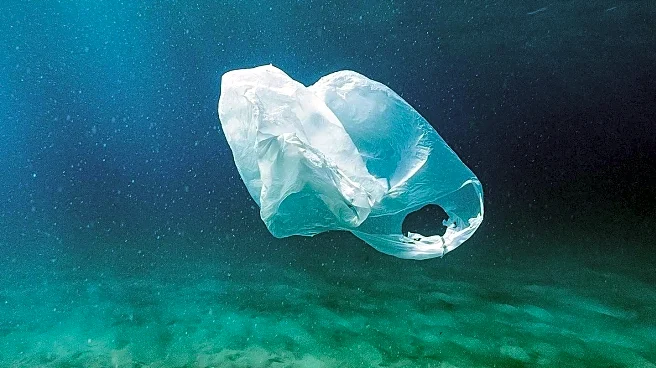What's Happening?
A recent report published in The Lancet has raised alarms about the escalating issue of plastic pollution and its potential impact on human health. The report, co-authored by global experts, describes the plastic crisis as a 'grave, growing and under-recognized danger.' It highlights that plastic production has increased over 200 times since 1950, driven by consumption patterns. The report anticipates that production will triple in the next 35 years if current trends continue. Plastic pollution manifests in various forms, including large litter pieces, microplastics, and disintegrated chemicals, posing health and environmental hazards. The production process involves fossil fuel extraction, which can damage ecosystems and contaminate groundwater, while disposal issues arise from inadequate recycling, leading to landfill overflow and habitat contamination.
Why It's Important?
The report underscores the significant health risks associated with plastic pollution, affecting individuals from infancy onward. Health concerns include reproductive issues, cognitive dysfunction, cardiovascular problems, stroke, and cancer, potentially resulting in over a trillion dollars in annual economic losses. Environmentally, plastic production generated nearly 2 billion tons of heat-trapping gases in 2019, contributing to global warming. The United Nations has initiated global talks to address the plastics crisis, aiming for an international treaty. However, recent negotiations failed to reach an agreement due to resistance from oil-producing countries against production caps, opting instead for recycling and waste management strategies.
What's Next?
Efforts are underway to develop advanced recycling technologies and pollution detection methods. Community initiatives and cleanup efforts are encouraged to collectively tackle plastic pollution. Households can contribute by adopting plastic-free practices. Local advocacy for evidence-based regulations can drive change at the municipal and state levels. The Lancet's Countdown on Health and Plastics will continue monitoring the health implications of plastic pollution globally, while the international community awaits the finalization of a treaty to address the crisis.









